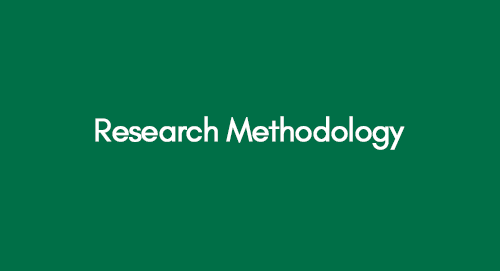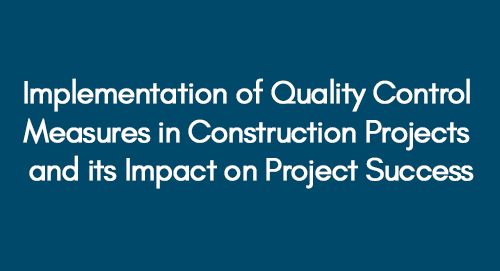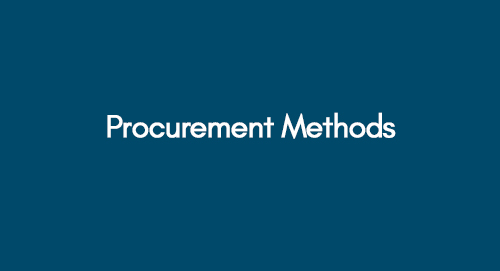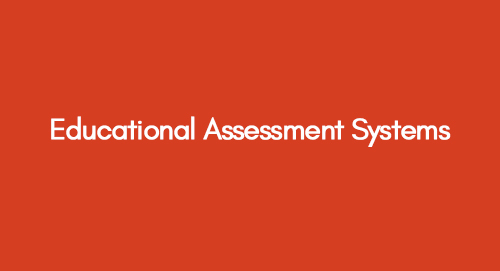
Research Methodology
July 12, 2022
How to Write a Dissertation? | Comprehensive Step-by-Step Guide
July 18, 2022In the construction saga, the implementation of quality control measures is the architect's pen, sketching precision on the blueprint of success. With each meticulously measured line, it etches a narrative where the structural integrity of attention becomes the cornerstone, and the project's triumph unfolds as a masterpiece in the built landscape of accomplishment.
Outline
- Research Question
- Research Aims and Objectives
- Literature Review
- Research Method
- Reference
The main activities of numerous businesses are centered around projects. Organizations exist to obtain new projects and ensure their effective execution. As Rumane, (2017) expressed, effectively executed projects are the basis on which businesses shape their future. Whether they are related to the manufacturing of new products, the development of infrastructures, the expansion of production limits, or the introduction of another computer framework, project management is vital for the viable coordination and the management of the business, guaranteeing that the right measures are used at the right time with a complete comprehension of the outcomes.
Explore the Concept of Project Management Right Here
As indicated by Larsen, Shen, Lindhard, and Brunoe, (2015), the concept of project management incorporates the capacity to accomplish objectives within the established limited resources including budget, labor, material, and different resources. Nevertheless, in many organizations, projects are not executed easily. As per an investigation by Abas, et al. (2015), Gartner, a world-acclaimed analytical organization, revealed that around 66 percent of large-scale projects are not able to achieve their stated business objectives and are finished late, or essentially exceed the spending limit. In this way, quality is one of the principal aspects of the success of construction projects. The quality management of construction projects, along with the success of the projects, may be considered the primary objective of the project members. Basu, (2015) showed that one of the key elements of project management is quality management of the project. Quality is a necessary set of attributes of an object identified with its capacity to achieve foreseen or established needs.
A research question is the compass that guides inquiry, framing the focus and direction of an investigation.
Research Question
To what extent is Total Quality Management used in Construction Projects?
Research Aims and Objectives
This research aims to understand to what extent is Total Quality Management used in construction projects. To achieve this aim, the researcher has established the following objectives:
- To explore the concept of Total Quality Management.
- To analyze Total Quality Management and determine the characteristics of Total Quality Management practice in project management.
- To analyze construction projects to identify the Total Quality Management in use in the construction industry.
- To determine the theoretical extent to which TQM is used in construction projects.
- To test the theoretical answer empirically using a survey of project managers.
- To present, analyze and discuss the results from the theoretical answer (5) and empirical data to provide a conclusive answer.
- To recommend areas of further research in Total Quality Management.
Literature Review
Researchers, especially in recent years, have been devoted to the problems of improving the quality of project management of an enterprise, its harmonization with the quality standards used at the enterprise, preparing the enterprise, its departments, and employees for certification according to the international standard for project management (Small, Bakry, and Ayyash, 2019). However, to understand project quality management, it is necessary to first understand the concept of quality.
Quality
Quality is an essential and multidimensional aspect of a product. The significance of every feature may fluctuate with the situation and after some time, as individuals can change their views and update their positions regarding an object (Neyestani, and Juanzon, 2016). In this manner, the concept of quality cannot be considered absolute. However, it relies upon the evaluator's point of view. As indicated by an investigation by Rumane, (2017), quality is a mind-boggling idea since it has various implications for various individuals. In this manner construction project quality is a set of attributes to be achieved, in a specific way, with the goal that the construction project addresses the client's needs, and for this to occur, the project manager must have a definite and clear purpose.
Project Quality Management
As indicated by PMBoK, quality management of projects incorporates the procedures important to guarantee that the project addresses the client’s needs for which it was shaped (Larsen, Shen, Lindhard, and Brunoe, 2015). The fundamental practices of quality management are:
Quality planning: It involves recognizing the applicable quality guidelines for the project and deciding how to satisfy those guidelines;
Quality assurance: It involves regular appraisal of general project performance to construct trust in the project’s achievement in achieving pertinent quality guidelines;
Quality control: It involves monitoring project-specific outcomes to decide if these outcomes fulfill pertinent quality guidelines, and distinguishing approaches to eradicate the reasons for poor project performance.
The essential methodology utilized in the quality management of projects portrayed by PMBoK ought to be consistent with that utilized by the International Standardisation Organisation (ISO). ISO 9000 is a worldwide quality standard that applies quality management procedures to create products that meet the desires of its clients (Basu, 2015). This quality standard was made on the foundation that if the project management is of good quality, then the subsequent product or service created through that project management will likewise be of good quality. A quality project as per ISO 9000 will guarantee that its development procedure has a level of discipline, control, and repeatability, guaranteeing the quality of its outcomes (Basu, 2015).
Quality Management in Construction Projects
Construction is a multifaceted process, including many organizations for the implementation of a single project; however, contractors, consultants, and clients are critical to the success of any project. According to Small, Bakry, and Ayyash, (2019), today, a part of construction companies understands that the way of thinking and designing the project has a fundamental impact on obtaining the quality of a building. The success of any project directly depends on quality. Managing quality requires managing resources, personnel, and, of course, the quality of projects. Hence, quality control is very important in achieving acceptable construction performance.
According to a study by Larsen, Shen, Lindhard, and Brunoe, (2015), Project Management is the application of knowledge, skills, tools, and techniques to meet project requirements. The main difficulties a project manager faces in ensuring the quality of the project and meeting or exceeding expectations and balancing demands and conflicts. According to Rumane, (2017), management must have ensured that any new project or modifications to old include the preparation of a quality management plan integrated with the overall project plan, periodically reviewed and accepted by the team. This quality management plan should include quality planning in each phase of the construction project.
According to a study by Larsen, Shen, Lindhard, and Brunoe, (2015), project quality planning is carried out to select those provisions of standards and norms that are appropriate and possible to apply to a particular project, as well as the activities and work necessary to ensure the requirements of these standards for the quality of results and project processes. Abas, et al. (2015) stated that quality planning is part of the project planning process as a whole, and its results should be reflected in the enterprise project management plan. The project quality plan determines how the necessary quality of the project work will be provided in terms of organizational structure, resources, as well as methodological and instrumental support. As Basu, (2015) pointed out, at the stage of quality planning, documents can be created that regulate measures for monitoring the quality of project management, for example, a plan for project audits, forms for monitoring and management reporting, etc. Monitoring the quality of the project should be planned and systematic in the form of various activities, such as audit, monitoring, and examination.
Total Quality Management and Project Management
Project-oriented activities have a narrow specificity; therefore both the architecture of the quality management system (QMS) and the specific ways of implementing its elements in each project can vary greatly and depend on its scale, profile, structure, goals, management style, and culture (Neyestani, and Juanzon, 2016). One of the main ideas of Total Quality Management (TQM) is to manage the quality of the developed product during its manufacturing process, which is achieved at each stage of this process. The concept of TQM in project management implies that the development process should be structured in such a way as to enable the measurement of quality at each stage of the project (Small, Bakry, and Ayyash, 2019).
Research Method
Research method, or technique, includes planning and leading the investigation taking everything into account. The execution of scientific research starts with the decision of the problem or issue to be studied or investigated and the formation of research questions (Saunders, Lewis, and Thornhill, 2015). This study will be based on a mixed-method using both quantitative and qualitative research methods. The researcher has decided to use a secondary research method for gathering the relevant qualitative data for this research regarding the extent of application of Total Quality Management practices in the construction industry. The researcher will being by elaborating on the concept of TQM in detail. Subsequently, the researcher will use the vast amount of existing research and data available on TQM and explain the factors that encourage and factors that prevent the application of TQM.
Since the topic of quality management has been studied several times in a vast number of contexts, hence, the researcher believes that the relevant information can be gathered easily on the application of Total Quality Management practices in the construction industry. Moreover, since this study focuses primarily on construction company projects, therefore, the quantitative data will be gathered from surveys that will be conducted by project managers involved in construction projects. The survey results will be subsequently analyzed and presented for this study to test the theoretical framework. Additionally, using the findings from the theoretical framework and survey findings, the researchers will present conclusive results and recommend areas for further research in the Total Quality Management field.
Reference
Abas, M., Khattak, S.B., Hussain, I., Maqsood, S. and Ahmad, I., 2015. Evaluation of Factors affecting the quality of construction projects. Technical Journal, University of Engineering and Technology (UET) Taxila, Pakistan, 20(2), pp.115-120.
Basu, R., 2015. Cost of Quality for Construction Projects: a Fresh Look.
Bryman, A., & Bell, E. 2015. Business research methods. Oxford university press, pp. 41-54
Bryman, A., 2017. Quantitative and qualitative research: further reflections on their integration. In Mixing methods: Qualitative and quantitative research (pp. 57-78). Routledge.
Creswell, J. W. 2012. Qualitative inquiry and research design: Choosing among five approaches. Sage. Pp. 11
Flick, U. 2015. Introducing research methodology: A beginner’s guide to doing a research project. Sage. pp. 67
Larsen, J.K., Shen, G.Q., Lindhard, S.M. and Brunoe, T.D., 2015. Factors affecting schedule delay, cost overrun, and quality level in public construction projects. Journal of Management in Engineering, 32(1), p.04015032.
Matthews, B., & Ross, L. 2014. Research methods. Pearson Higher Ed. Pp. 84
Maxwell, J. A. 2012. Qualitative research design: An interactive approach: An interactive approach. Sage. Pp. 32
McCusker, K. and Gunaydin, S., 2015. Research using qualitative, quantitative or mixed methods and choice based on the research. Perfusion, 30(7), pp.537-542.
Neyestani, B. and Juanzon, J.B.P., 2016. Developing an Appropriate Performance Measurement Framework for Total Quality Management (TQM) in Construction and Other Industries.
Rumane, A.R., 2017. Quality management in construction projects. CRC Press.
Saunders, M.N., Lewis, P. and Thornhill, A., 2015. Research Methods for Business Students EBook. Pearson Australia Pty Limited.
Sekaran, U. and Bougie, R., 2016. Research methods for business: A skill building approach. John Wiley & Sons.
Small, E.P., Bakry, I. and Ayyash, L.A., 2019. Evaluating the effect of TQM on MEP construction productivity and project delivery in Dubai. International Journal of Construction Management, pp.1-15.
Get 3+ Free Dissertation Topics within 24 hours?




























